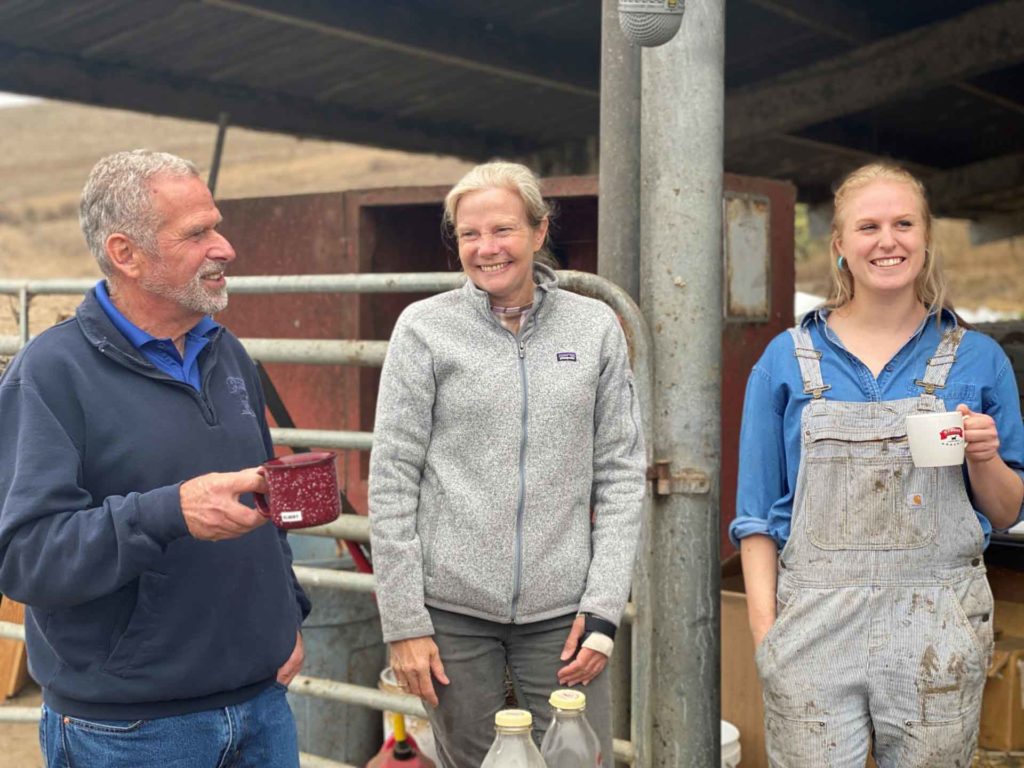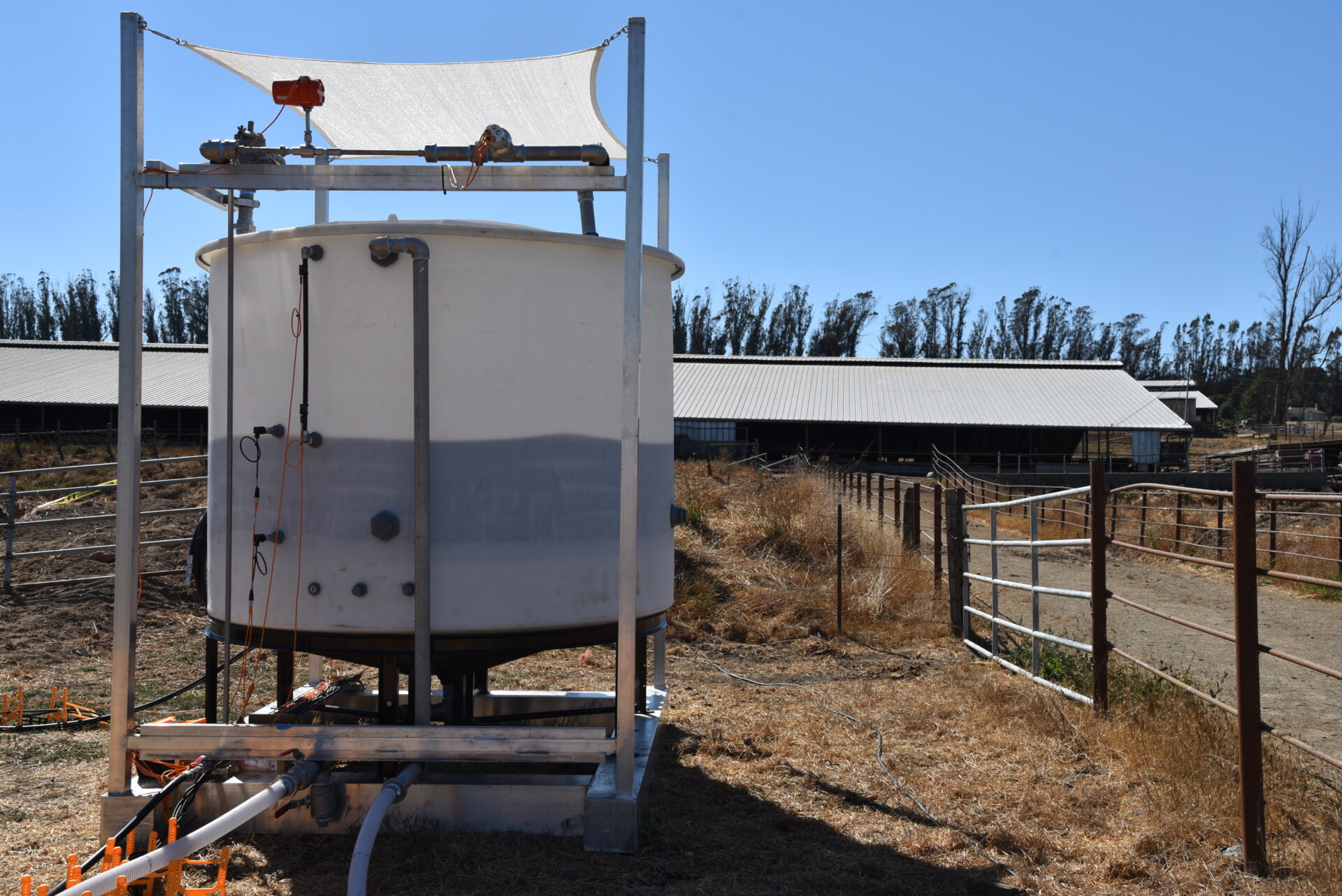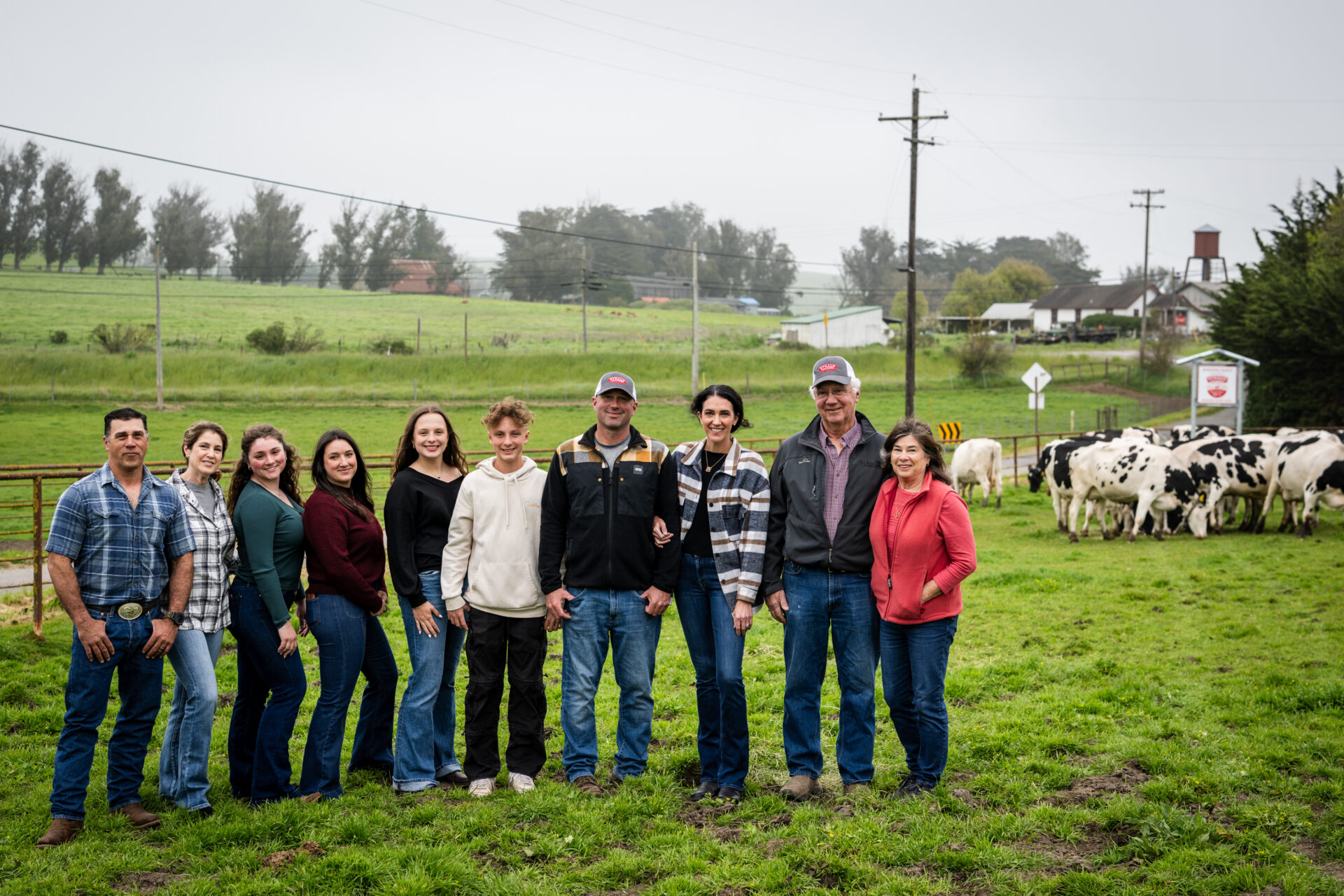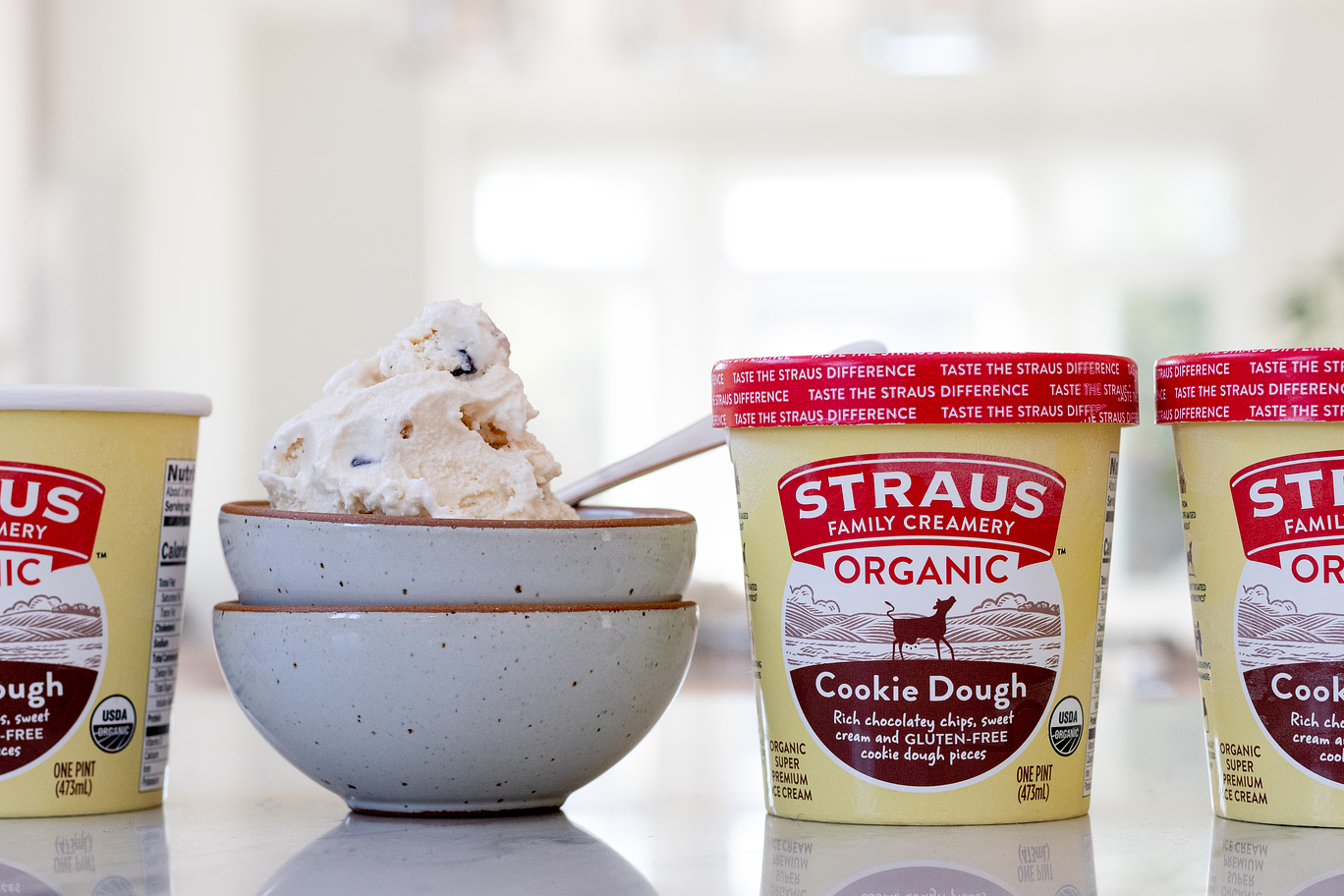FIRST U.S. COMMERCIAL TRIAL USING RED SEAWEED (ASPARAGOPSIS TAXIFORMIS) SUCCESSFULLY REDUCES ENTERIC METHANE EMISSIONS FROM COWS, PROVING POTENTIAL FOR IMMEDIATE CLIMATE IMPACT
PETALUMA, Calif., (October 27, 2021) — Straus Family Creamery’s founder Albert Straus and seaweed-supplement maker Blue Ocean Barns demonstrated a dramatic climate change solution, reducing dairy cows’ enteric methane emissions an average of 52 percent, and as much as 90 percent, by supplementing their diets with a specific red seaweed (Asparagopsis taxiformis). These reduction results were part of the first commercial trial in the United States using this red seaweed on a dairy farm, illustrating that innovative dairy farming can substantially reduce its climate impact.
Straus Family Creamery Founder and CEO Albert Straus received approval from the United States Department of Agriculture (USDA) National Organic Program and California Department of Food and Agriculture (CDFA) to conduct the trial on his California organic dairy farm. This is the largest and longest study of the red seaweed supplement for dairy cows.
The enteric methane emissions of twenty-four cows on the Straus Dairy Farm were tested four times a day to determine the impact of adding roughly one-quarter pound of red seaweed each day to their regular 45-pound diet for a total of 50 days in August and September. During the trial, enteric methane emissions were reduced an average of 52 percent, and as much as 90 percent. Five metric tons of carbon dioxide equivalent emissions were averted in seven weeks from these 24 cows.
Enteric fermentation (cow burps) is responsible on average for 35 percent of total U.S. on-farm greenhouse gas emissions from dairy cows and the production of their feed supply. Cows belch methane gas as a normal part of a healthy digestive process. But methane is a greenhouse gas 34 times more potent than carbon dioxide (CO2). A productive Holstein cow burps about the same emissions as one car’s tailpipe, roughly one ton of CO2e every three months.
“If we can get up to 90 percent reduction in methane emissions through feeding red seaweed to cows, this is a huge leap forward for us in creating a sustainable farming system that is beneficial to the planet and our communities,” said Albert Straus. “Red seaweed is also the next critical step we need to reach our carbon-neutral farming model goal in 2023 on the Straus Dairy Farm. This model will demonstrate that dairy farming and animals are one of the essential climate change solutions we need while providing high-quality organic food.”
California is the number one milk producer in the United States and is responsible for the most dairy farm emissions. The state must reduce dairy methane by 40 percent over 2013 levels by 2030 to meet its climate goals.
“Red seaweed immediately and radically drops enteric methane emissions –and an immediate and radical solution is what the planet needs right now,” said Joan Salwen, Co-Founder and CEO, Blue Ocean Barns. “We need to install electric vehicle charging stations throughout the country and replace coal plants with cleaner energy. But the Blue Ocean Barns seaweed solution is ready right now, it goes to work on climate change immediately, and it is economical.”
Before 2018, no solutions for dramatically reducing burped emissions had been proved in live cows. However, in the past three years, university research has proved that adding just a few ounces of red seaweed to cows’ diets naturally reduces enteric methane gas production. A UC Davis study published in the peer-reviewed scientific Journal of Cleaner Production, which the Straus Dairy Farm and Blue Ocean Barns study successfully replicated, showed greater than 50 percent methane emissions reduction in dairy cows. Additional studies have demonstrated that the seaweed does not affect cow herd health, milk production, or the taste and chemistry of the milk.
Organic Farmer Albert Straus has always actively worked to find agriculture-based climate solutions on his farm by prioritizing sustainable organic farming practices, converting cow manure to biogas via a methane digester, implementing carbon farming to improve soil health, and using on-farm electric vehicles. Together, the seaweed feed and the methane digester will reduce methane emissions by 90%, helping Albert Straus meet his goal of creating a net carbon neutral farming model on his dairy farm by 2023. He plans to extend the model by the end of the decade to the supplying Straus Family Creamery dairy farms and beyond.
After the Straus Dairy Farm reaches carbon neutrality, the milk produced on the farm and processed at Straus Family Creamery will have a low climate impact comparable to non-dairy milk alternatives. Reducing the climate impact of organic dairy milk is imperative to fulfilling Straus Family Creamery’s mission to sustain family farms and revitalize rural communities.
Watch Albert Straus of Straus Family Creamery and Joan Salwen of Blue Ocean Barns on video here.
###
Straus Family Creamery is based in Petaluma, CA, Straus Family Creamery is a Northern California, certified organic creamery offering minimally processed organic dairy products made from organic milk supplied by family farms in Marin and Sonoma Counties, including the Straus Dairy Farm, which is the first certified organic dairy farm west of the Mississippi River. Straus Family Creamery, the first 100 percent certified organic creamery in the United States, continues to make business decisions based on its mission to help sustain family farms, revitalize rural communities, and protect the environment. The family-owned business sustains collaborative relationships with the family farms that supply it milk, offering stable prices and predictability in what can otherwise be a volatile marketplace. Albert Straus and Straus Family Creamery were the original supporters, financial contributors, and collaborators on the UC Davis scientific trials studying red seaweed’s impact on dairy cows. Learn about the Straus difference at StrausFamilyCreamery.com, Facebook, Instagram, Twitter, YouTube, and Linkedin.
Blue Ocean Barns is a public benefit corporation committed to reducing greenhouse gas emissions from the dairy and beef industries. Blue Ocean Barns provided the seaweed, methane measurement devices and animal scientist support for the trial. Based in Kailua-Kona, Hawaii, and San Diego, Blue Ocean Barns is sustainably cultivating a variety of the seaweed in nutrient-rich deep seawater. The company is currently negotiating pilot contracts with dairy and beef companies for 2022.
MEDIA CONTACTS:
Shereen Mahnami
Director of Communications
Straus Family Creamery
707-776-2887×2149
Shereen@strausmilk.com
Haven Bourque
HavenBMedia
415-505-3473
Haven@HavenBMedia.com



